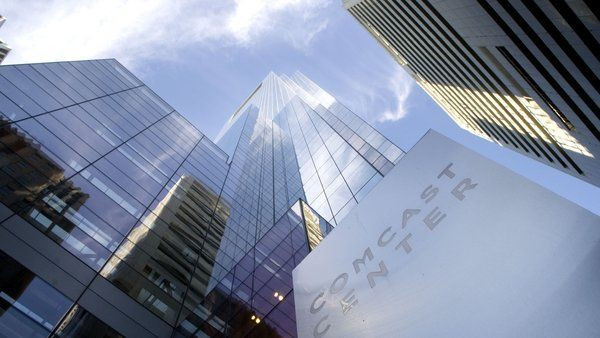Net Neutrality: Comcast, TWC Blast Obama Plan, Call Title II ‘Radical Reversal’

They own the pipes that deliver the Internet, and now they want President Obama to pipe down. The country’s two largest cable companies on Monday criticized an Obama proposal that would reclassify broadband Internet as a utility-like service under Title II of the Communications Act. The move would subject Internet service providers to stricter regulation and, supporters say, force them to adhere to the principles of net neutrality.
But David L. Cohen, executive vice president of Comcast Corp., said the plan would be a huge step backward on numerous fronts. “To attempt to impose a full-blown Title II regime now when the classification of cable broadband has always been as an information service, would reverse nearly a decade of precedent, including findings by the Supreme Court that this classification was proper,” Cohen said in a statement. “This would be a radical reversal that would harm investment and innovation, as today’s immediate stock market reaction demonstrates. And such a radical reversal of consistent contrary precedent should be taken up by the Congress.”
The cable companies will have some allies in the new, Republican-controlled Senate. In a tweet, Sen. Ted Cruz, R-Texas, called the president's plan "Obamacare for the Internet."
"Net Neutrality" is Obamacare for the Internet; the Internet should not operate at the speed of government.
- Senator Ted Cruz (@SenTedCruz) November 10, 2014Stocks for major cable companies -- including Comcast, Time Warner Cable Inc. and Charter Communications -- took a hit Monday following the White House statement in which the president called on the Federal Communications Commission to adopt a set of rules to protect net neutrality.
Specifically, the president said Internet service providers should be prohibited from blocking or throttling content, and from charging certain companies for Internet “fast lanes.” He also said ISPs should not be allowed to act as gatekeepers, restricting what consumers see online:
“For almost a century, our law has recognized that companies who connect you to the world have special obligations not to exploit the monopoly they enjoy over access in and out of your home or business. That is why a phone call from a customer of one phone company can reliably reach a customer of a different one, and why you will not be penalized solely for calling someone who is using another provider. It is common sense that the same philosophy should guide any service that is based on the transmission of information -- whether a phone call, or a packet of data.”
Cable companies are becoming more and more dependent on their broadband businesses as they have shed traditional pay-TV subscribers in the age of cord-cutting. While most major cable providers have said publicly that they are committed to net neutrality, they contend that utility-like regulation would stifle innovation and create an unfair burden on their operations.
Rob Marcus, chief executive of Time Warner Cable, said he disagrees with the president’s assertion that Title II reclassification is the only way to achieve net neutrality. “Regulating broadband service under Title II, as the president proposes, will create unnecessary uncertainty, lead to years of litigation and threaten the continued growth and development of the Internet,” Marcus said. “The FCC has sufficient tools without reclassifying broadband to protect the openness of the Internet while at the same time encouraging continued investment and innovation in the Internet ecosystem.”
As an independent agency, the FCC is not obligated to adopt the president’s proposed rules, but the unequivocal White House endorsement could nudge Chairman Tom Wheeler toward reclassification.
Cohen, who has been lobbying in Washington in support of Comcast’s proposed $45 billion takeover of Time Warner Cable, said the FCC already has ample authority to regulate an open Internet under Section 706 of the Telecommunications Act, which allows the agency to regulate broadband infrastructure. The Comcast executive went on to credit cable and telecom companies for creating the broadband revolution -- a revolution, he said, that would not have been possible had they been subjected to an “intrusive regulatory regime” designed for a pre-Internet era.
“The Internet has not just appeared by accident or gift,” Cohen said. “[I]t has been built by companies like ours investing and building networks and infrastructure. The policy the White House is encouraging would jeopardize this engine for job creation and investment as well as the innovation cycle that the Internet has generated.”
Christopher Zara is a senior reporter who covers media and culture. Got a news tip? Email me here. Follow me on Twitter @christopherzara.
© Copyright IBTimes 2025. All rights reserved.




















